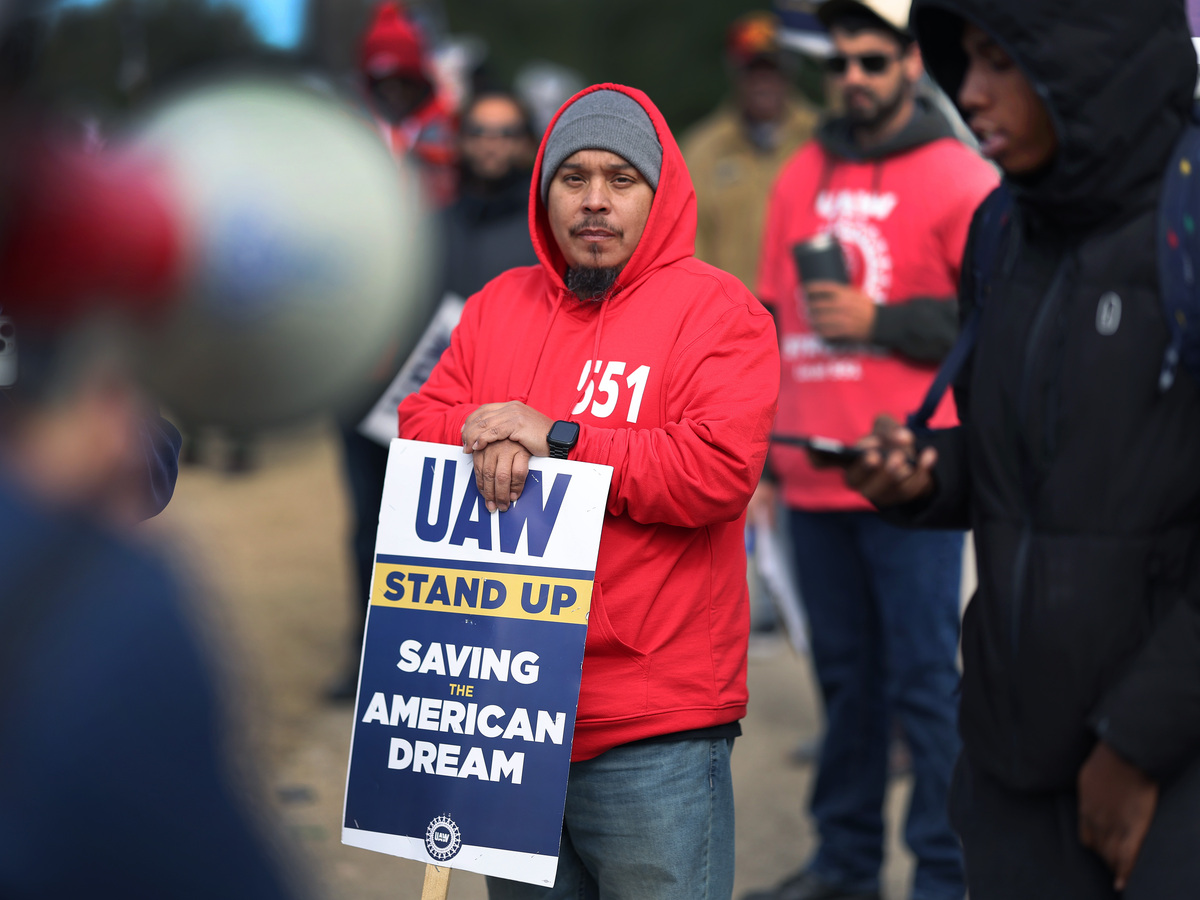
Workers on the picket line outside of the Ford Assembly plant outside of Chicago last month during the UAW strike against the Big Three U.S. automakers. Scott Olson/Getty Images hide caption

Workers on the picket line outside of the Ford Assembly plant outside of Chicago last month during the UAW strike against the Big Three U.S. automakers.
Scott Olson/Getty ImagesThe United Auto Workers secured its biggest victory in decades in deals with the Big 3 car companies after weeks of strikes.
While the union won a lot of concessions for workers: big pay raises, cost of living adjustments tied to inflation and increased retirement contributions, some workers are focused on what the new contracts are missing.
NPR Labor and Workplace Correspondent Andrea Hsu reports on what the historic contracts include and what they don't. Host Ari Shapiro speaks with NPR business reporter Camila Domonoske about how the UAW is looking to build on its gains.
Email us at
This episode was produced by Connor Donevan and Gurjit Kaur. It was edited by Uri Berliner, Rafael Nam, Adam Raney and Courtney Dorning. Our executive producer is Sami Yenigun.

 Live Radio
Live Radio